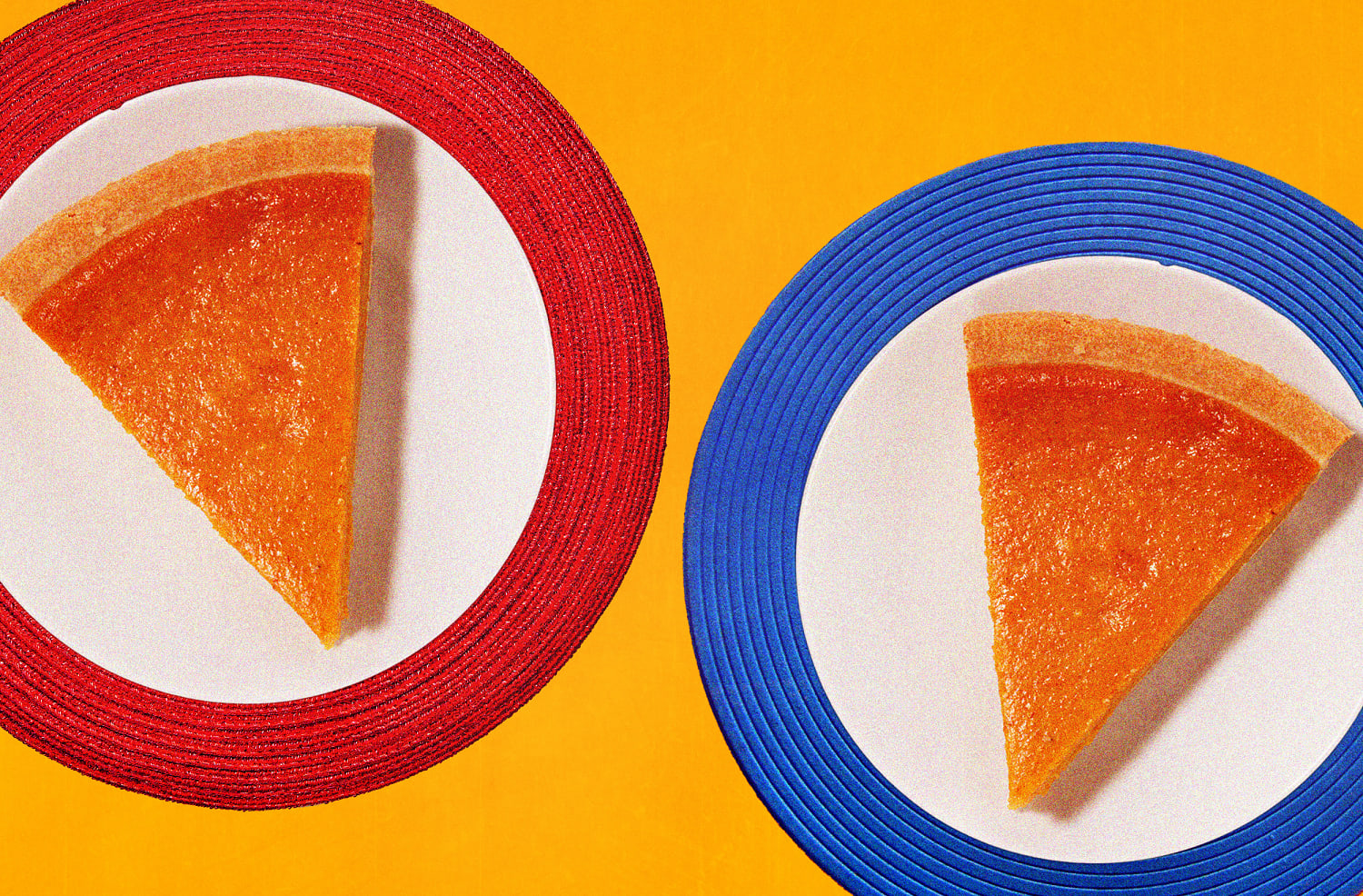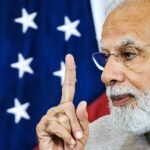For some, politics isn’t off the table at Thanksgiving. It’s just not welcome.

Post-election tensions are prompting some families to rethink who will be at the Thanksgiving table this year.
In the weeks after the victory of President-elect Donald Trump, a fiery debate has re-emerged about whether it’s fair to cut ties with loved ones due to opposing political values. While some people said they are choosing not to celebrate the upcoming holidays with family members who voted for Trump, others are lamenting being uninvited to family gatherings for supporting him.
For many people, politics has always been considered a taboo subject at the dinner table. But in recent years, as the country has become more politically and culturally divided, some said it’s gotten harder to face the holidays with friends and family members who don’t share their political views. This animosity is a culmination of tensions that had been rising within politically divided families and friend groups ever since Trump’s first victory, in 2016.
A national CBS News/YouGov poll conducted last week found that 71% of people plan to avoid political discussions at Thanksgiving. Of those polled, 1 in 10 said they have changed their plans to avoid gathering with people who voted for a different presidential candidate than they did.
“If somebody voted in ways that hurt you or people you love, it is 100% OK to distance yourself from them,” said Alexis Voss, a stay-at-home mother in Ohio who identifies as liberal.
Voss was among the dozens of people on social media who posted videos about how they are opting out of their family Thanksgiving plans. After spending eight years trying to reconcile with her largely Republican extended family, Voss said she’s reached a boiling point.
“That’s a privilege to say that you think this is just about politics. … I don’t think this is about politics,” she said. “I think this is about my morals and my basic human rights as a woman and mother.”
In recent weeks, public figures have fanned the flames of the discourse by weighing in on the topic. One highly circulated clip showed Yale psychiatrist Amanda Calhoun telling MSNBC’s Joy Reid that it’s “completely fine to not be around those people and to tell them why, to say, ‘I have a problem with the way that you voted because it went against my very livelihood. And I’m not going to be around you this holiday. I need to take some space for me.’”
The comment sparked a flurry of backlash from conservatives, including Fox News host Jesse Watters, who shared on air that his mother had uninvited him from his family Thanksgiving. Elon Musk also responded to a similar debate last week, writing on X: “Cutting someone off just because they voted for the other candidate is close-minded and just plain mean.”
Jay Van Bavel, a psychology professor at New York University, said the country’s division in recent years has largely been driven by hatred of the other side as opposed to love of one’s own side. This is exacerbated, he said, by Trump’s status as one of the most polarizing political figures in American history.
Van Bavel is director of NYU’s Social Identity and Morality Lab, which studies the dynamics of shared social identities. He said the lab’s research shows that much of the polarization comes from massive misunderstandings about the other party’s actual stances — a consequence of social media platforms’ tendency to amplify the most extreme voices within either party.
“There’s way more diversity among Republicans than most Democrats believe, and there’s way more diversity among most Democrats than most Republicans believe,” Van Bavel said. “And the average member of those parties doesn’t believe what we think they believe.”
Diana Rodriguez Wallach, a Pennsylvania-based author of young adult horror, who supported Vice President Kamala Harris, said she’s skipping her family Thanksgiving to protect her mental health.
“With the holiday being so close to the election, I worry that a political argument might break out that would further divide our family,” said Wallach, 46, who also posted a TikTok video about her decision. “So I think it’s in the best interest of our long-term relationships to take some space right now.”
For Wallach, voting for Trump meant voting for values and potential policies that could tangibly harm her and her family. She said that she fears how conservatives’ efforts to ban books in schools and libraries under the claim of critical race theory, for example, could affect her as a Puerto Rican author.
California resident Jordan Williams, who voted for Trump, said he received upward of 50 Thanksgiving invitations from strangers online after posting on TikTok that his family isn’t inviting him home this year.
Being the only MAGA conservative in a majority-Democratic family, Williams said, has caused a splinter between him and his loved ones. He said he voted for Trump out of a belief that he would lower prices, end veteran homelessness and address the national substance abuse crisis. Williams said his family objected to his vote, citing Trump’s racist and sexist rhetoric and their belief that Trump’s policies would benefit the wealthy over the common citizen.
Williams, 23, said some of his family members hurled insults at him during their conversations after the election, but that he still hopes to “mend the fence” if they one day grow receptive.
“Honestly, it was crushing,” he said of his newfound alienation. “I’m a family man, and for me to be ostracized and kicked out of family groups because of who I voted for, it really hurt me a lot.”
The instinct to exclude people who “violate social norms” is one that’s permeated societies throughout history, according to Van Bavel. But in order for a society like the United States to function, he said, people must figure out how to deal with those who fundamentally differ from themselves.
One of the biggest fears people have is being socially ostracized. But in the case of politics, it might make them double down and they might decide now that you’re extra crazy because you’ve done this thing to exclude them.
Jay Van Bavel, psychology professor at New York University
“One of the biggest fears people have is being socially ostracized,” Van Bavel said. “But in the case of politics, it might make them double down and they might decide now that you’re extra crazy because you’ve done this thing to exclude them.”
Because tensions are so high this year, former hostage negotiator Scott Walker, who now coaches clients on negotiation and conflict resolution, is hosting an all-day public hotline on Thanksgiving Day for families who might need help defusing political arguments.
It’s an idea launched by the emotion management app Ahead, which conducted an anonymous data analysis of 81,000 U.S. users and found that 44% predict more political arguments during this year’s Thanksgiving than any previous Thanksgiving.
For those who are planning to attend a possibly hostile Thanksgiving, Walker said it can help to prepare in advance for the hot-button topics that are likely to come up. A productive conversation can come from listening to understand an opponent’s point of view, Walker said, rather than only listening to rebut. He added that it’s OK to feel angry or disappointed, but that it’s important not to let ego run the show.
“Of course, you can walk away anytime you want. No one’s forcing you to engage in this,” he said. But if they’re willing, Walker said, politically divided families can benefit from “bringing more curiosity than assumption to the table, because assumptions are like earplugs: They get in the way.”
You may be interested

U.S. official says early indications Azerbaijan plane was hit by Russia
new admin - Dec 26, 2024IE 11 is not supported. For an optimal experience visit our site on another browser.Now PlayingU.S. official says early indications…

Carly Simon, Rod Stewart, More
new admin - Dec 26, 2024[ad_1] As we’ve witnessed with such visionaries as Phil Spector and Sam Phillips, pop record producers can have hugely impactful…

Mother of Oxford High School shooter requests to be released from prison pending appeal
new admin - Dec 26, 2024Jennifer Crumbley wants conviction overturned. What happens next? Jennifer Crumbley wants conviction overturned. What happens next? 02:19 (CBS DETROIT) -…




































